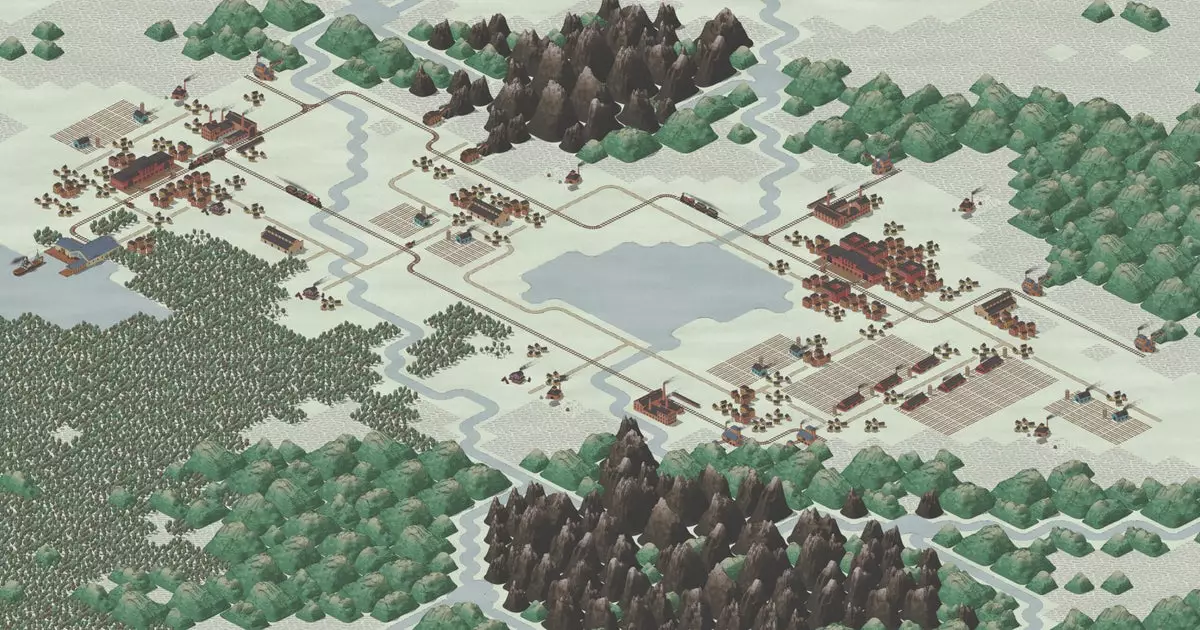“Times of Progress” represents a unique entry in the realm of city-building games, and its significance to me is heightened by the fact that it was one of the first news tips I received from Sin Vega, a notable figure in strategy gaming. This title, released against the backdrop of the Industrial Revolution, encapsulates an era where innovation met urban growth, a theme both engaging and fraught with challenges. Sin Vega, in a moment of playful reflection, once likened the experience of reporting on game developments to practicing complex gymnastics under the watchful eye of a master. This allegory resonates deeply, especially as I endeavor to share my thoughts about the game, hoping to avoid any critical missteps while addressing an audience eager for insights.
In “Times of Progress,” players find themselves navigating the complexities of an emergent urban landscape amid a sea of changing technology. The game’s visual style stands out, employing a clean and refined aesthetic, marked by procedural generation that offers a unique twist on traditional city-building mechanics. The colors and structures remind us of a bygone era, featuring hues of earthy tones, vibrant reds, and lush greens, which together create an inviting atmosphere while implying the hustle and bustle of city life during the Industrial Revolution.
The game’s setting invites players to explore the joys of construction and progress, be it through fit-and-finish urban planning or the incorporation of technological innovations that reflect the historical period. The challenge, however, lies not just in expanding one’s city but in mastering the rhythm of a dynamically evolving world.
One of the most striking features of “Times of Progress” is how it integrates historical events and advancements into gameplay mechanics. Rather than simply assigning researchers to unlock technologies at will, players experience a timed evolution that mirrors real-world breakthroughs. Technologies such as the water frame or typewriter don’t just serve as tools for progress; they become milestones tied to the fabric of the city’s development.
Players earn points through various achievements, allowing for the accelerated acquisition of technologies. This system encourages strategic thinking and foresight as players balance resource management with technological advancement, echoing the reality of an industrializing world.
In “Times of Progress,” the focus shifts away from military exploits often found in other city-builders; it emphasizes trade and commerce as the bedrock of urban development. Each metropolis becomes a participant in a larger economic network, where the input and export of goods determine the prosperity of its citizens. The absence of military elements may initially seem limiting, yet it paves the way for a game heavily reliant on diplomacy and commerce.
This economic dynamic is further underscored by labor relations that introduce an interesting layer of complexity. When workers go unpaid, they are likely to strike, compelling the player to balance financial stability against the need for a harmonious workforce. Decisions made in these scenarios reflect the socio-political tensions of the Industrial era, making “Times of Progress” a microcosm of historical realities.
The beauty of “Times of Progress” lies in its equilibrium; it walks a fine line between the intricate delight of constructing a sprawling city and the nuanced dilemmas of historical accuracy. You’re not just managing resources and buildings; you’re also navigating the proverbial tightrope of societal dynamics. Workers’ rights and their demands add a rich narrative layer that requires thoughtful engagement from players. In doing so, the developers have crafted a game that appeals both to the hearts and minds of its audience, imbuing it with historical significance while delivering enjoyable gameplay.
The creative force behind “Times of Progress” is Pressing Thumbs Games, a solo studio based in Berlin. The developer utilizes the Rust programming language and the Bevy Engine, showcasing a commitment to quality and innovation. The studio’s name, which translates to the German equivalent of crossing one’s fingers for luck, reflects an aspirational spirit, one that resonates with anyone involved in creative endeavors.
“Times of Progress” is more than just a city-building game; it offers a glimpse into a transformative historical period while challenging players to rethink urban growth. Whether you’re a seasoned strategist or a curious newcomer, this game presents a fertile ground to explore the intricate dynamics of industry, labor, and trade. As players immerse themselves in this animated world, they are reminded that while history may be shaped by the grand narratives of leaders, it is the everyday lives of workers that truly build progress.

